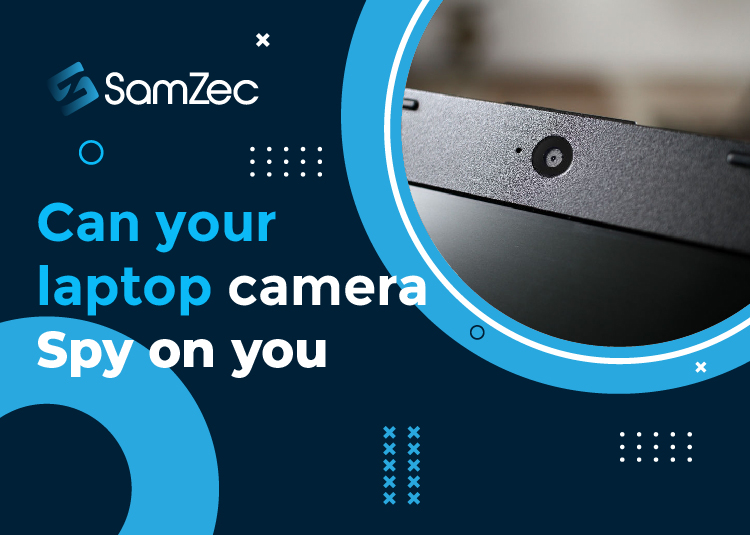A laptop is a handy tool for video chatting, online banking, and generally staying in touch while on the run. But what if your PC’s camera has been hacked to spy on you?
That sounds like the beginning of a paranoid science fiction story, but it can happen with malware designed to capture images through your laptop’s webcam.
What are the chances that someone could hack into your computer this way? For instance, if you don’t even use Skype or Google Hangouts for video conferences yourself – someone else might be doing so without your knowledge. Hackers have proved capable of hijacking webcams even when they’re turned off.
Prevention Tips
To prevent webcams from being used to spy on you, or accessed without your knowledge, here are some things you can do:
- Install anti-spyware software – either a third-party package or your system’s built-in security tools. If malware is already running on your machine, it will be too late. But if not, take advantage of the situation and deliver the malware scanner right away. Some security suites offer webcam protection as part of their features list.
- Make sure that no applications can access webcams without asking for permission first. For the most part, it should be set up this way by default – but some security tools (e.g., Webcam Sentinel) will need to be configured manually before working properly.
- Don’t give away access through a wireless connection! Using a laptop on a public network is always a dubious practice. If you do so, at least use SSL encrypted protocols for sensitive data transmissions and keep an eye out for any strange-looking popups trying to “activate” hardware components like webcams or microphones.
- Turn off your webcam if you’re not using it – hitting F11 might be enough to snap it shut again after being activated from sleep mode.
- Be careful about networks and file-sharing services that you grant access to your laptop. It’s common for people to give unlimited access rights to their home networks, for example – but what will you do if a hacker gains control through one of the shared folders inside?
- For extra security, cover up webcams or use electronic means to block them when not in use. You can buy webcam covers starting at around $20 online.
Remember that it’s much trickier to notice someone spying on you through your computer than with an external webcam (e.g., built into a laptop). Anyone who managed to hack into your PC could record everything within sight and transmit video signals outside of your computer without triggering any usual alerts.
- Keep your computer up to date. If anti-spyware software or other related programs are not configured to do so automatically, remember to install an operating system update the moment you hear about it! Security updates usually include patches for known vulnerabilities – loopholes that cybercriminals can exploit to gain access to your machine.
- To be on the safe side, don’t use webcams at all if you can afford them. It might raise eyebrows with people around you, but then again, they might have nothing to hide behind their facade of innocence.
Conclusion:
A laptop is a handy tool for video chatting, online banking, and generally staying in touch with people you know. All the same, safety is better than being sorry – especially if you’re dealing with sensitive information. It’s best to go into using a webcam on a laptop with a clear conscience.
FAQs
Can hackers see through your laptop camera?
Yes, hackers can see through your laptop camera. Most laptops have a built-in camera that allows the user to video chat over the Internet. But that means that to allow this level of functionality, your camera is easy for hackers to access. They can see what you are doing and hear what you are saying.
What is webcam spying?
Webcam spying is the ability to capture or spy on video or audio data from another computer system. The software is designed to deceive the target user into thinking that their webcam is off or inactive. In reality, it is still being used to capture video or audio data.
How do I secure my camera?
Secure your camera using a cable lock, and remember to cut the cable. Don’t just leave it furnished. You can use cable locks at home or while you’re in the field. The police won’t know the difference.




















